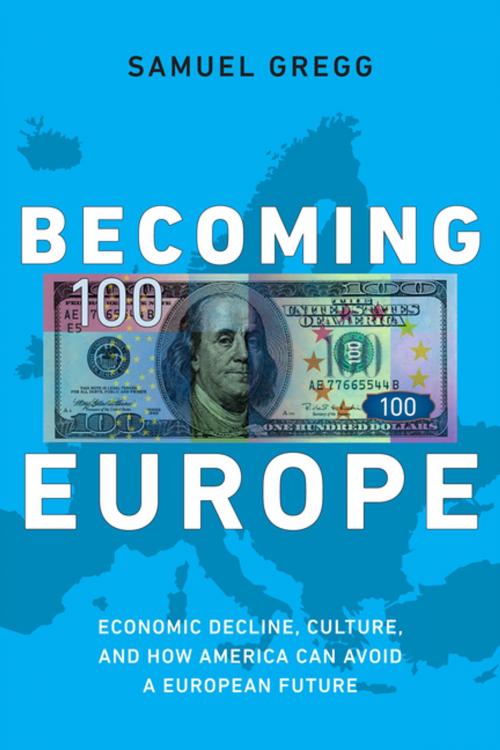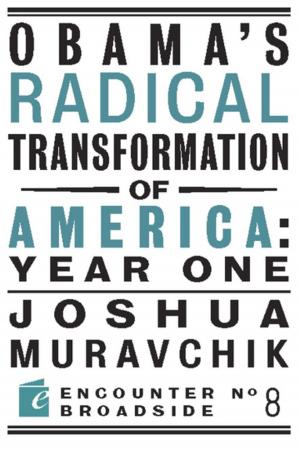Becoming Europe
Economic Decline, Culture, and How America Can Avoid a European Future
Nonfiction, Social & Cultural Studies, Political Science, Politics, Economic Policy| Author: | Samuel Gregg | ISBN: | 9781594036507 |
| Publisher: | Encounter Books | Publication: | January 8, 2013 |
| Imprint: | Encounter Books | Language: | English |
| Author: | Samuel Gregg |
| ISBN: | 9781594036507 |
| Publisher: | Encounter Books |
| Publication: | January 8, 2013 |
| Imprint: | Encounter Books |
| Language: | English |
We’re becoming like Europe.” This expression captures many Americans’ sense that something has changed in American economic life since the Great Recession’s onset in 2008: that an economy once characterized by commitments to economic liberty, rule of law, limited government, and personal responsibility has drifted in a distinctly European” direction.
Americans see, across the Atlantic, European economies faltering under enormous debt; overburdened welfare states; governments controlling close to fifty percent of the economy; high taxation; heavily regulated labor markets; aging populations; and large numbers of public-sector workers. They also see a European political class seemingly unable-and, in some cases, unwilling-to implement economic reform, and seemingly more concerned with preserving its own privileges. Looking at their own society, Americans are increasingly asking themselves: Is this our future?”
In Becoming Europe, Samuel Gregg examines economic culture-the values and institutions that inform our economic priorities-to explain how European economic life has drifted in the direction of what Alexis de Tocqueville called soft despotism,” and the ways in which similar trends are manifesting themselves in the United States. America, Gregg argues, is not yet Europe; the good news is that economic decline need not be its future. The path to recovery lies in the distinctiveness of American economic culture. Yet there are ominous signs that some of the cultural foundations of America’s historically unparalleled economic success are being corroded in ways that are not easily reversible-and the European experience should serve as the proverbial canary in the coal mine.
We’re becoming like Europe.” This expression captures many Americans’ sense that something has changed in American economic life since the Great Recession’s onset in 2008: that an economy once characterized by commitments to economic liberty, rule of law, limited government, and personal responsibility has drifted in a distinctly European” direction.
Americans see, across the Atlantic, European economies faltering under enormous debt; overburdened welfare states; governments controlling close to fifty percent of the economy; high taxation; heavily regulated labor markets; aging populations; and large numbers of public-sector workers. They also see a European political class seemingly unable-and, in some cases, unwilling-to implement economic reform, and seemingly more concerned with preserving its own privileges. Looking at their own society, Americans are increasingly asking themselves: Is this our future?”
In Becoming Europe, Samuel Gregg examines economic culture-the values and institutions that inform our economic priorities-to explain how European economic life has drifted in the direction of what Alexis de Tocqueville called soft despotism,” and the ways in which similar trends are manifesting themselves in the United States. America, Gregg argues, is not yet Europe; the good news is that economic decline need not be its future. The path to recovery lies in the distinctiveness of American economic culture. Yet there are ominous signs that some of the cultural foundations of America’s historically unparalleled economic success are being corroded in ways that are not easily reversible-and the European experience should serve as the proverbial canary in the coal mine.















